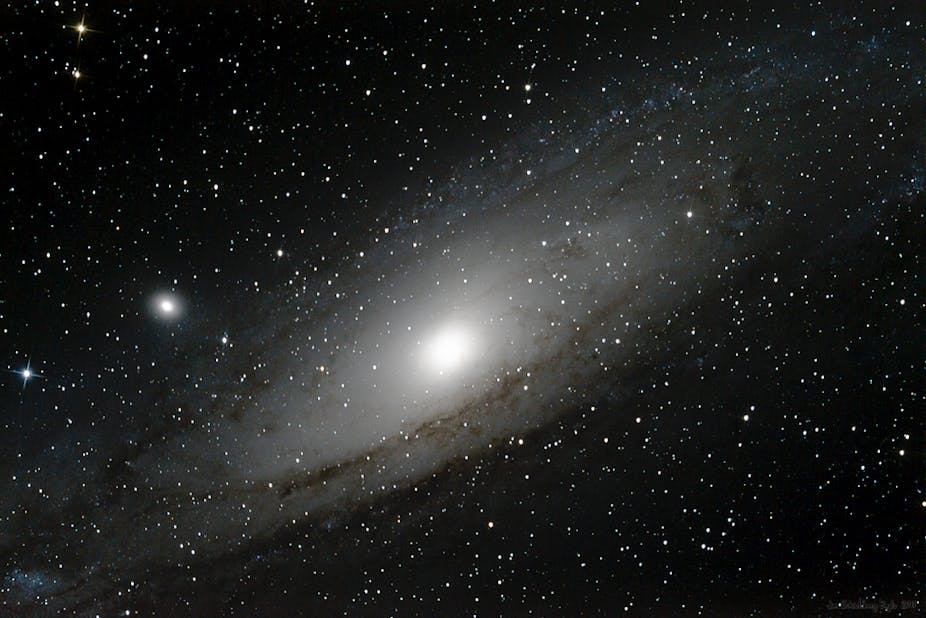The notebooks of Sir Isaac Newton, who was famously reported to have suffered a (scientifically) earth-shaking blow to the head from an apple, are being scanned and published online by the University of Cambridge.
Newton, a Biblical numerologist when he wasn’t developing calculus or building the first reflecting telescope, founded classical mechanics with Philosophiæ Naturalis Principia Mathematica (Mathematical Principles of Natural Philosophy), which was first published in 1687. In the book that made his name, Newton set out his three laws of motion, and his theory of universal gravitation (prompted by pondering what force plummeted the fruit straight down onto his head, or so goes the apocryphal tale).
Newton studied and later held the Lucasian Chair of Mathematics at Cambridge, which was given numerous manuscripts of his in 1872 and has since bought more. The online publication has started with Newton’s mathematical works of the 1660s and more papers will become available over coming months.

A philosopher of science at Flinders University, George Couvalis, said that Newton’s gravitational experiments – which largely corrected ancient observations of gravity – were sparked by his interest in magic and magnetism. “The idea that things might naturally attract one another is an idea that he got from magical ideas. He adapted it across to mathematical theory because it was a mystical theory,” Dr Couvalis said.
It was important to remember that scientists of Newton’s era did not have what we would consider a modern sceptical outlook and – with the exception of the “exceptional” Galileo Galilei – instead held a fusion of views that we would consider deeply irrational, Dr Couvalis said.
“It was certainly far more common in the 17th and 18th centuries for scientists to be interested in magical beliefs and alchemical beliefs and religious beliefs. Johannes Kepler, for example, had all kinds of strange views about the music of the spheres, Copernicus had strange views about the sacredness of the sun, and Newton famously had views about the mysterious numerical meanings of Biblical passages and about alchemical material, ” Dr Couvalis said.
Scientists of the period saw their work touching on many illogical and occult fields of interest, including Robert Boyle, a founder of modern chemistry, who had “an interest in doing experimental research on magical mirrors, which to us would sound bizarre but at the time it was thought to be a possibility,” said Dr Couvalis, who added that Boyle pulled back from some experiments for religious reasons. “He thought it might get him in touch with demons.”
Demonology may have fallen out of favour amongst scientists, but “the view that we’re getting everything right would be a serious mistake,” Dr Couvalis said. “To some degree science is always in the sway of the time it’s in; this is now the standard view of philosophers and historians.”
“Newton’s mechanics is in certain respects pretty much right, but in other respects it was shown by Einstein and others to be wildly wrong. By about 1900 we had people saying to their graduate students ‘You should give up physics because it’s all been done,’ but Einstein managed to show that it was wildly wrong in certain respects,” Dr Couvalis said.
The ideal of the scientific method is never met, and our beliefs and discoveries will likely on day be seen as flawed but perhaps useful stepping stones in the continuum of science, Dr Couvalis said. “People make mistakes, people have a lot of trouble leaving assumptions behind, and our tests are never rigorous enough to be absolutely certain that we’re getting things right. Future experimental studies and the sheer empirical facts will show us to be wrong in many ways that we can’t anticipate.”
“We work with what we have because we just don’t know anything better at the moment. It might turn out that Einstein’s special and general theories of relativity are wrong in some deep-seated way. It might turn out that some of our theories of the universe are wrong. It’s starting to look in biology as if neo-Darwinism isn’t completely right, so where will that go - I don’t know. Research will determine the direction. That doesn’t mean that we’re going to go back to being creationists - that view has been thoroughly debunked. Imre Lakatos wrote in the 1970s there are no good scientific theories, there’s only the best rotten theory we have.”
Newton’s papers are available here.


